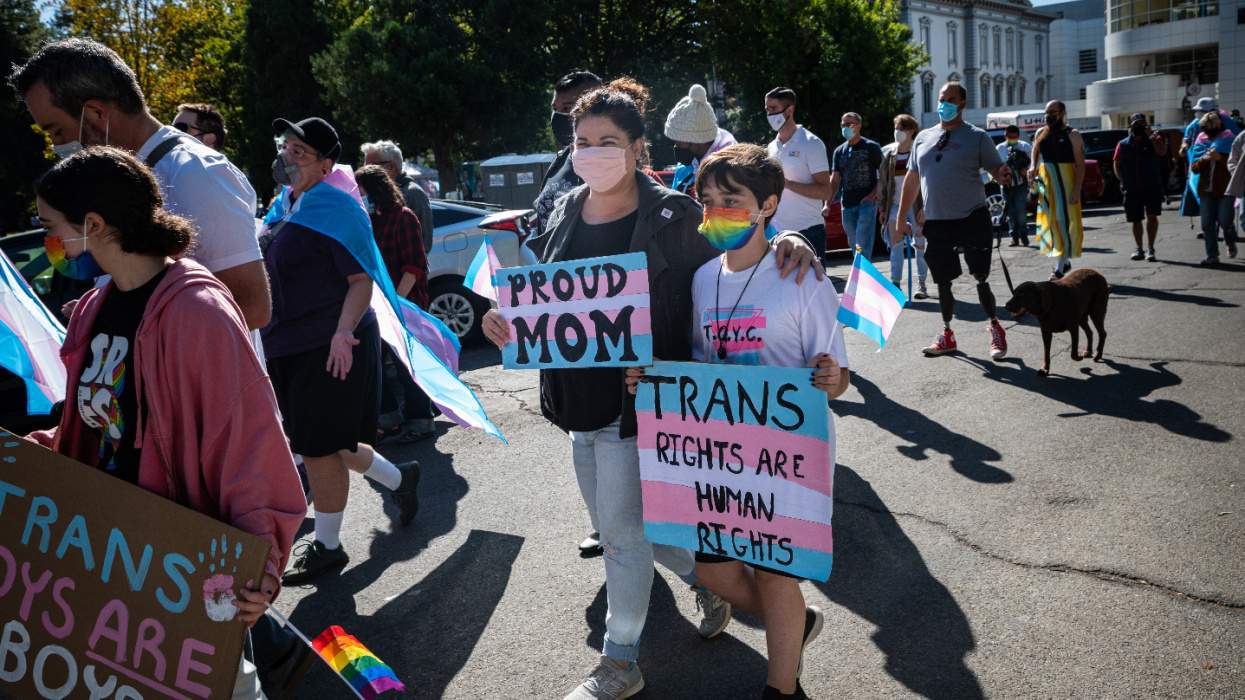Surprisingly, Iran may be the most open-minded country in the Middle East when it comes to transgender issues, reports The Washington Post in a new investigative piece.
The theocracy has taken a strong stance in favor of transgender people over the past 30 years, ever since its founder Ayatollah Ruhollah Khomeini issued a fatwa (religious decree) calling for the respect of transgender people and officially supporting gender-confirmation surgery. Don't think that has tempered the nation's feelings on homosexuality though, which is still criminalized. In fact, being gay is punishable by death there.
"In Iran we don't have homosexuals like you do in your country," President Mahmoud Ahmadinejad told students at Columbia University in 2007.
Religious leaders view gender-confirmation surgeries as a necessary cure to the "disease" of not identifying as a straight male or female. In fact, transgender individuals who refuse the operation and get new documents can face arrest for cross-dressing.
"It was like paradise, that moment, that place, everything felt like I was in paradise," says transgender Iranian woman Maryam Khatoonpour Molkara, who was allowed to transition and fully recognized as a woman by the Supreme Leader in the early 1980s. She explained to him how her gender identity did not match with her biological sex and was officially recognized as a woman with a veil.
Transgender people can even receive financial aid for transition surgeries in Iran. Grants range up to $1,200 towards the $7,000-$12,000 the surgery. The State Welfare Organization of Iran says 3,000 people have applied for the stipend in the past years, as many as 70 people a year.
Though seemingly supportive, Iran's approximately 50,000 transgender people still face challenges in the everyday lives. "Social encounters are not good at all -- verbal and physical abuse and harassment," Nahal, a 19-year-old trans woman told the Post. "Once even some people attacked and beat me."
Family life is especially difficult; trans women face being kicked out of their homes and threatened by relatives who often try to interfere with their surgeries.
"Some families even threaten to kill me if I tell them their child is a trans," Behnam Ohadi, a psychiatrist and psychologist who refers trans patients to Iran's Health Ministry for surgery, told the Post. "Sometimes they wish their child had cancer or died."















Charlie Kirk DID say stoning gay people was the 'perfect law' — and these other heinous quotes
These are some of his worst comments about LGBTQ+ people made by Charlie Kirk.